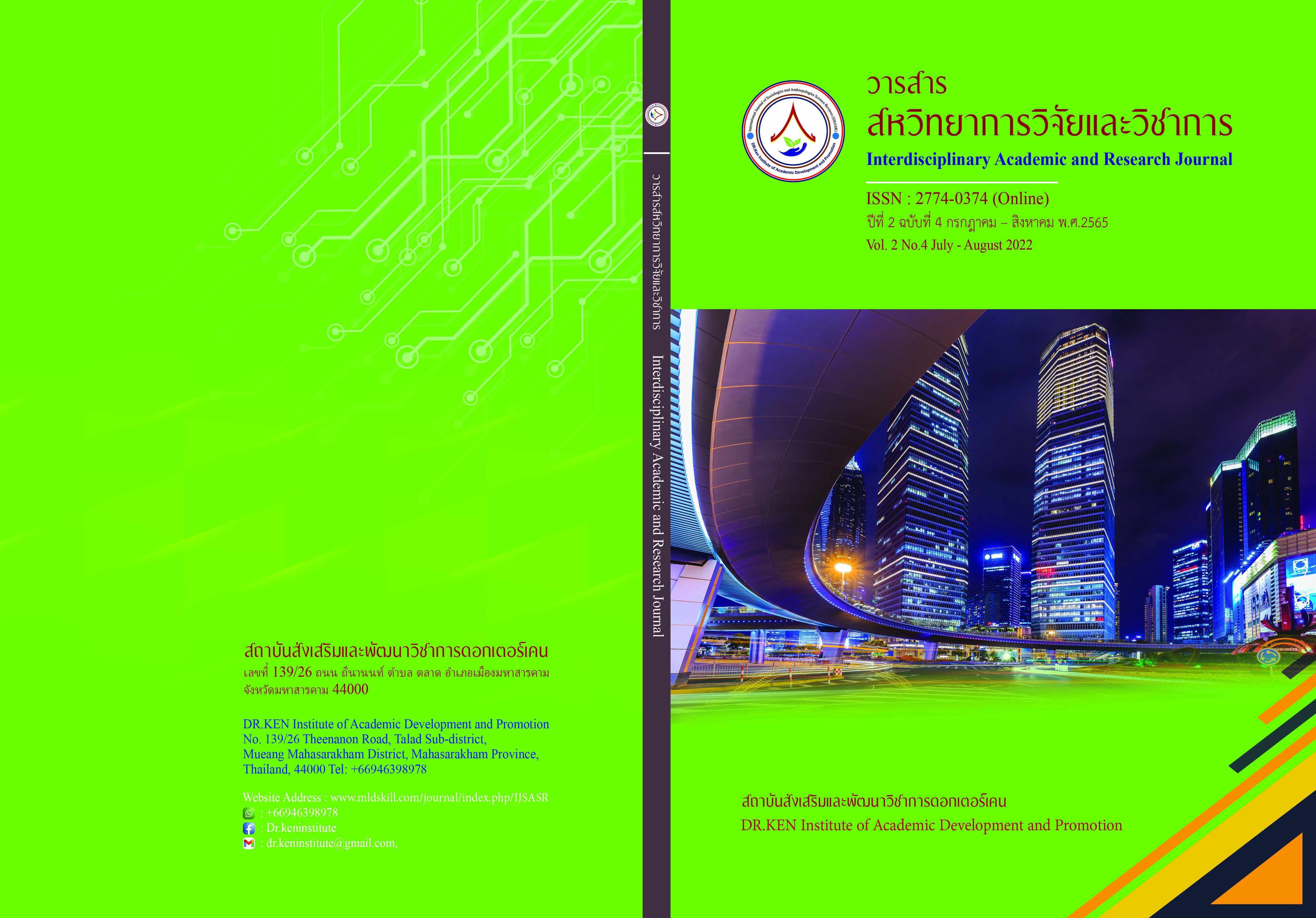Thai Political Party Management to Participatory Democracy
DOI:
https://doi.org/10.14456/iarj.2022.76Keywords:
Management; , Thai Political Parties; , Participatory DemocracyAbstract
Political parties are political institutions that are very important for the governance of democracy because political parties are like bridges between the people's sector and the government that serve to govern. Political parties are political institutions that have legitimacy in choosing representatives in the form of Elections to allow individuals or groups to act in the allocation of resources and the benefits of society. This article aims to study the current state, problems, and obstacles of Thai politics in democratic systems today, and to suggest the management of Thai political parties toward participatory democracy. The results showed that: (1) The lack of continuity in Thai political development in the past and the coup revolution failed political parties to develop into participatory democracy. The current management of Thai political parties depends on the situation and political changes, and political leaders by political parties adopt populist policies to build popular votes for political parties. And (2) Problems and obstacles in the development of participatory democracy in Thailand are caused by: (A) Factors within a political party are Political ideology, political participation, political party policies, structure, and management. Problems with the personal attributes of political party members in terms of the moral and ethical behavior of politicians. (B) External factors are the continuity of the operation of political parties, political party law, and the relationship between people and political parties.
References
จงพิศ สิทธิพงษ์. (2556). นโยบายพรรคการเมืองที่มีผลต่อการตัดสินใจเลือกตั้งสมาชิกสภาผู้แทนราษฎร. กรุงเทพฯ: วิทยานิพนธ์รัฐศาสตร์มหาบัณฑิต มหาวิทยาลัยรามคำแหง.
จักษ์ พันธ์ชูเพชร. (2549). การเมืองการปกครองไทย: จากยุคสุโขทัยสู่สมัยทักษิณ. ปทุมธานี: พิมพ์ลักษณ์.
จุมพล หนิมพานิช. (2552). กลุ่มผลประโยชน์กับการเมืองไทย. กรุงเทพฯ: จุฬาลงกรณ์มหาวิทยาลัย
ชาญชัย จิตรเหล่าอาพร. (2559). พรรคการเมือง กลุ่มผลประโยชน์ และการเลือกตั้ง. ปทุมธานี: มหาวิทยาลัยรังสิต
ณัชชาภัทร อุ่นตรงจิตร. (2552). รัฐศาสตร์. กรุงเทพฯ: บริษัทธรรมดาเพรส.
ลิขิต ธีรเวคิน. (2553). การเมืองการปกครองไทย. กรุงเทพฯ: มหาวิทยาลัยธรรมศาสตร์
วิทยา ขินบุตร. (2559). ความนิยมทางการเมืองของพรรคชาติไทยพัฒนาในจังหวัดสุพรรณบุรี. รัฐสภาสาร, 64 (7), 96-122.
วิทยา นภาศิริกุลกิจ และสุรพล ราชภัณฑารักษ์. (2539). พรรคการเมืองและกลุ่มผลประโยชน์ Political . กรุงเทพฯ: โรงพิมพ์มหาวิทยาลัยรามคำแหง.
วิศิษฐ์ ทวีเศรษฐ และสุขุม นวลสกุล. (2543). การเมืองการปกครองไทย Thai Government and Politics PS 110. กรุงเทพฯ: โรงพิมพ์มหาวิทยาลัยรามคำแหง.
เสนีย์ คำสุข. (2552). 77 ปี เปลี่ยนแปลงการเมืองการปกครอง พ.ศ. 2475. รัฐสภาสาร. 57 (7), 7-27.
John W. Epperson . (1986). The Changing Legal Status of Political Parties in the United States. New York : Garland Publishing.
Downloads
Published
How to Cite
Issue
Section
License
Copyright (c) 2022 Wiboon Wiwithkhunakorn

This work is licensed under a Creative Commons Attribution-NonCommercial-NoDerivatives 4.0 International License.
Copyright on any article in the Interdisciplinary Academic and Research Journal is retained by the author(s) under the under the Creative Commons Attribution-NonCommercial-NoDerivatives 4.0 International License. Permission to use text, content, images, etc. of publication. Any user to read, download, copy, distribute, print, search, or link to the full texts of articles, crawl them for indexing, pass them as data to software, or use them for any other lawful purpose. But do not use it for commercial use or with the intent to benefit any business.
















.png)


